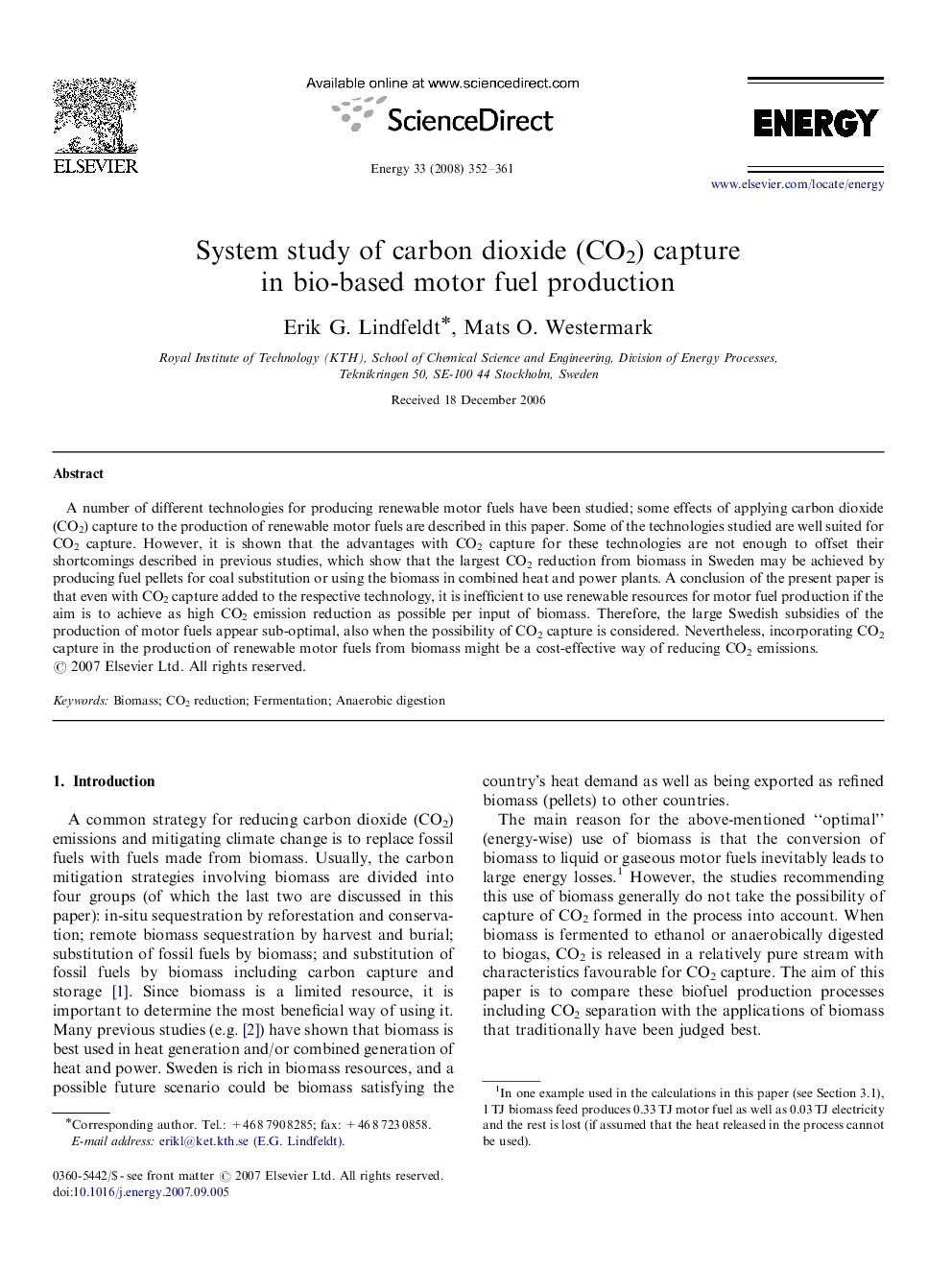| Article ID | Journal | Published Year | Pages | File Type |
|---|---|---|---|---|
| 1736272 | Energy | 2008 | 10 Pages |
A number of different technologies for producing renewable motor fuels have been studied; some effects of applying carbon dioxide (CO2) capture to the production of renewable motor fuels are described in this paper. Some of the technologies studied are well suited for CO2 capture. However, it is shown that the advantages with CO2 capture for these technologies are not enough to offset their shortcomings described in previous studies, which show that the largest CO2 reduction from biomass in Sweden may be achieved by producing fuel pellets for coal substitution or using the biomass in combined heat and power plants. A conclusion of the present paper is that even with CO2 capture added to the respective technology, it is inefficient to use renewable resources for motor fuel production if the aim is to achieve as high CO2 emission reduction as possible per input of biomass. Therefore, the large Swedish subsidies of the production of motor fuels appear sub-optimal, also when the possibility of CO2 capture is considered. Nevertheless, incorporating CO2 capture in the production of renewable motor fuels from biomass might be a cost-effective way of reducing CO2 emissions.
